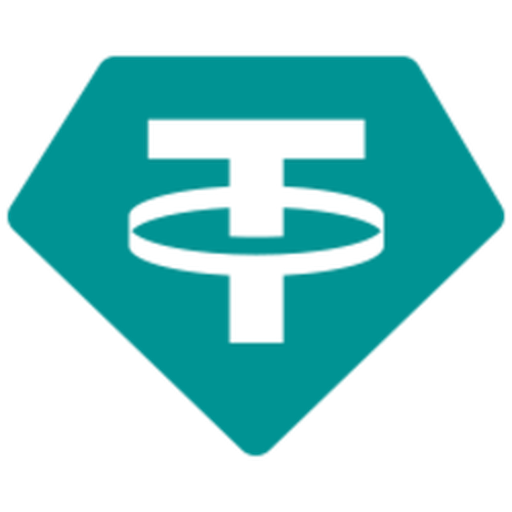Tether vs Rocket Pool – Price, Market Cap & Performance Compared
Which coin performs better – Tether or Rocket Pool?
We compare the current price (1 $ vs 5.48 $), market cap (173 087 463 220 vs 118 813 606) and all-time high (1.32 vs 61.9).
Find out which one stands out right now!
Tether is currently trading at 1 $, while Rocket Pool stands at 5.48 $. These cryptocurrencies differ not only in price but also in market presence.
The market cap of Tether is around 173 087 463 220, and Rocket Pool has about 118 813 606. Their respective all-time highs are 1.32 for Tether and 61.9 for Rocket Pool.
Daily trading volume and the 24h price change (-0.00189 % vs 1.24613 %) also offer key insights.
Compare all metrics now and see which coin fits your investment strategy best!
Tether
Tether is a widely-used stablecoin in the cryptocurrency market, designed to maintain a value equivalent to a traditional currency like the US dollar. It provides traders and investors with a stable asset to navigate the volatile crypto landscape, offering a flexible means to move funds quickly between exchanges. Despite its popularity, Tether has faced scrutiny regarding its reserve holdings and transparency, sparking ongoing debates within the financial community.
more informationRocket Pool
Rocket Pool is an innovative decentralized Ethereum staking service that allows users to participate in the Ethereum network's proof-of-stake consensus mechanism. By offering a user-friendly platform for staking, it democratizes access to staking rewards and enhances the network's security and decentralization. With a focus on community participation and decentralized governance, Rocket Pool provides a versatile and accessible option for both individual stakers and node operators.
more information

|

|
|
|
|
General Information |
|
|---|---|
|
Title
Tether
|
Title
Rocket Pool
|
|
Symbol
usdt
|
Symbol
rpl
|
|
Whitepaper
|
Whitepaper
|
|
Website
|
Website
|
|
Community
-
|
Community
-
|
|
Last Updated
2025-09-24 23:29
|
Last Updated
2025-09-24 23:28
|
Price Data |
|
|---|---|
|
Current Price $
1 $
|
Current Price $
5.48 $
|
|
High 24h
1 $
|
High 24h
5.61 $
|
|
Low 24h
1 $
|
Low 24h
5.35 $
|
|
Price Change 24h
-0.00002 $
|
Price Change 24h
0.06741 $
|
|
Price Change % 24h
-0.00189 %
|
Price Change % 24h
1.24613 %
|
Market Data |
|
|---|---|
|
Market Cap
173 087 463 220
|
Market Cap
118 813 606
|
|
Total Volume
95 616 120 249
|
Total Volume
5 478 942
|
|
Market Cap Change 24h
288 328 065
|
Market Cap Change 24h
1 269 516
|
|
Market Cap Change % 24h
0.16686 %
|
Market Cap Change % 24h
1.08003 %
|
|
Return on Investment (ROI)
-
|
Return on Investment (ROI)
-
|
Supply and Availability |
|
|---|---|
|
Circulating Supply
173 039 417 063
|
Circulating Supply
21 707 239
|
|
Total Supply
173 039 417 063
|
Total Supply
21 707 239
|
|
Max Supply
-
|
Max Supply
-
|
Historical Data |
|
|---|---|
|
All Time High (ATH)
1.32
|
All Time High (ATH)
61.9
|
|
ATH Change %
-24.39867 %
|
ATH Change %
-91.15973 %
|
|
ATH Date
2018-07-24 00:00
|
ATH Date
2023-04-16 19:20
|
|
All Time Low (ATL)
0.57252
|
All Time Low (ATL)
0.00885
|
|
ATL Change %
74.71457 %
|
ATL Change %
61 750 %
|
|
ATL Date
2015-03-02 00:00
|
ATL Date
2018-08-28 00:00
|
Tether
Understanding Tether: A Stablecoin Powerhouse
Tether (USDT) is a leading name in the world of stablecoins, a class of cryptocurrency designed to facilitate transactions by maintaining a stable value. Unlike volatile cryptocurrencies like Bitcoin or Ethereum, stablecoins like Tether aim to provide users with the stability of fiat currency, while still leveraging the benefits of blockchain technology.
The Mechanism Behind Tether's Stability
Tether achieves its stability by pegging its value to traditional fiat currencies, primarily the U.S. Dollar. Each Tether token is reportedly backed by an equivalent amount of fiat currency held in reserve. This 1:1 backing mechanism is key to maintaining the coin's stable value, as reflected in its market price which typically hovers around 1 USD.
Historical Development and Milestones
Tether's inception dates back to 2014, and since then, it has played a pivotal role in demonstrating the practical use case of stablecoins within the crypto ecosystem. Its journey has seen significant milestones, including reaching its all-time high of $1.32 in July 2018, and experiencing its low at $0.572521 in March 2015. These deviations, while noteworthy, are rare occurrences in Tether's overall history, underscoring its primary objective of price stability.
Advantages of Using Tether
The primary advantage of Tether is its stability, making it a safe harbor for investors during times of high volatility in the broader cryptocurrency market. By offering price predictability, it facilitates more efficient trading, lending, and arbitrage, making it an indispensable tool for crypto exchanges and users alike. Moreover, Tether's utility is further enhanced by its widespread acceptance and high liquidity.
Challenges and Controversies
Despite its widespread use, Tether has faced scrutiny regarding its claims of full fiat backing. Critics have raised concerns about transparency, regulatory challenges, and the adequacy of its audited reserves. These issues have occasionally prompted regulatory attention and calls for greater transparency and accountability from Tether’s management.
Future Outlook for Tether
The future of Tether rests heavily on its ability to maintain trust and transparency with users and regulators alike. As the crypto market matures, Tether is expected to continue playing a significant role, particularly if it can navigate the evolving regulatory landscape successfully. Its position as a stablecoin market leader suggests that it will remain a cornerstone in crypto trading, offering a reliable alternative to more volatile assets.
In conclusion, Tether stands out as a critical tool within the cryptocurrency space, providing much-needed stability for traders and businesses. Its ongoing relevance will depend on its adaptability to regulatory demands and its continued assurance of transparency and full reserve backing to its user base.
Rocket Pool
Understanding Rocket Pool: A Decentralized Ethereum Staking Solution
Rocket Pool is a decentralized Ethereum staking platform that aims to revolutionize the staking process by offering a unique, user-friendly, and trustless solution. With its symbol RPL, Rocket Pool has established itself as a noteworthy participant in the blockchain ecosystem, gaining attention for its innovative approach to Ethereum staking.
A Glimpse into Rocket Pool's Historical Journey
Since its inception, Rocket Pool has come a long way. Originally hitting the market at extremely low values, Rocket Pool saw its all-time low of $0.00884718 back in August 2018. Over the years, the coin reached its all-time high of $61.9 in April 2023. This drastic increase is testament to the platform's growing adoption and the general positivity around Ethereum staking solutions. As of the latest data, Rocket Pool trades at roughly $10.99, which indicates a significant decline from its ATH, yet still reflects substantial growth since its inception.
Advantages of Rocket Pool
Rocket Pool brings several advantages to the world of decentralized finance:
Decentralized Staking Solution: One of the primary benefits of Rocket Pool is its commitment to decentralization. It allows users to participate in Ethereum staking without requiring trust in a centralized entity, which is a core ethos of blockchain technology.
User-Friendly Platform: Designed with the end-user in mind, Rocket Pool simplifies the staking process, making it accessible to even those with limited technical knowledge.
Network Security and Reliability: By decentralizing the staking process, Rocket Pool enhances network security and reduces risks associated with central points of failure.
Challenges Faced by Rocket Pool
Despite its strengths, Rocket Pool is not without its challenges:
High Competition: The Ethereum staking landscape is competitive, with multiple platforms vying for dominance. Rocket Pool must continually innovate to maintain its market position.
Volatility: Like many cryptocurrencies, RPL exhibits high volatility, which can deter risk-averse investors.
Scalability: As the Ethereum network grows, so too does the challenge of scaling decentralized applications like Rocket Pool to accommodate increased demand.
Future Prospects for Rocket Pool
The future of Rocket Pool is intertwined with the success of Ethereum staking and the broader blockchain ecosystem. As Ethereum continues on its path toward becoming more scalable and efficient, Rocket Pool stands to benefit. Its focus on decentralization and user-friendliness positions it well to capture a significant share of the staking market.
Moreover, the team behind Rocket Pool is committed to ongoing development and innovation, which bodes well for the platform's ability to adapt to market changes and evolving user needs. As long as Rocket Pool continues to address its challenges, it has promising prospects in the ever-evolving world of cryptocurrency.
For more detailed information on Rocket Pool's framework and mechanics, enthusiasts and investors can explore its whitepaper or visit their official website.

